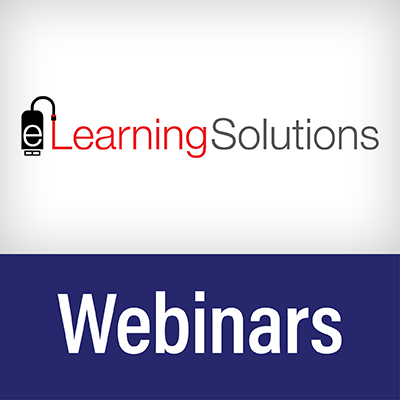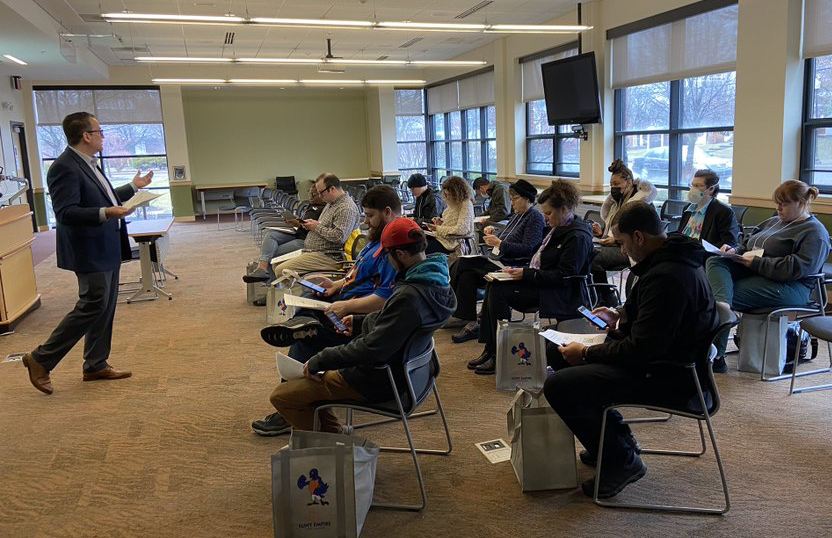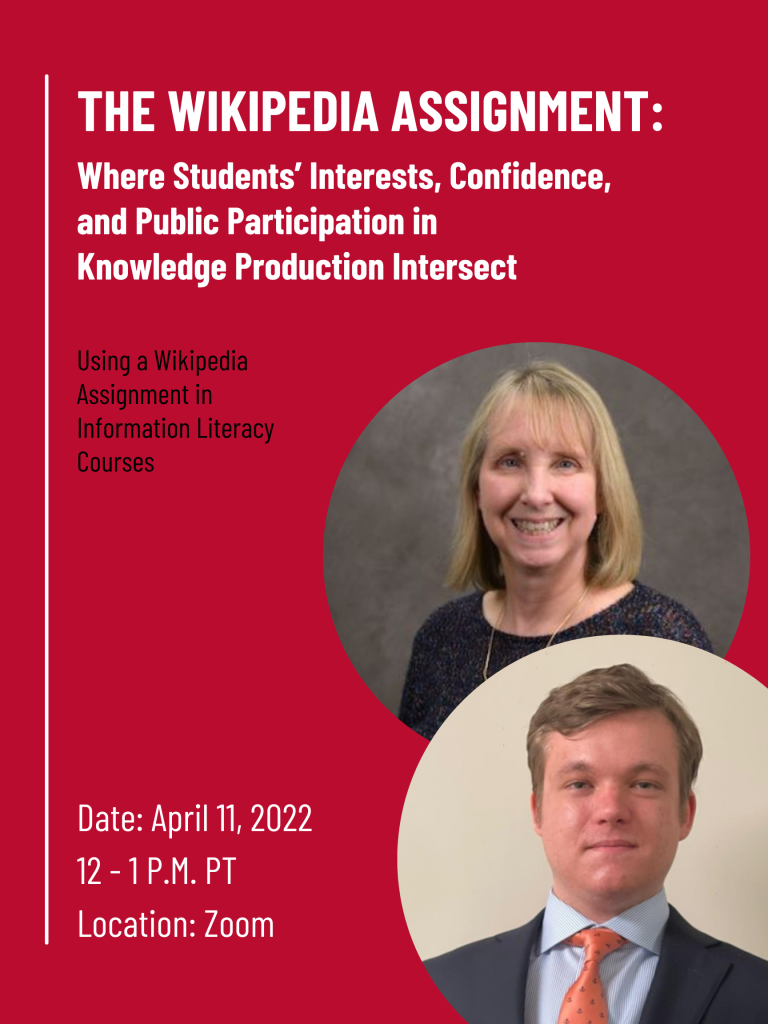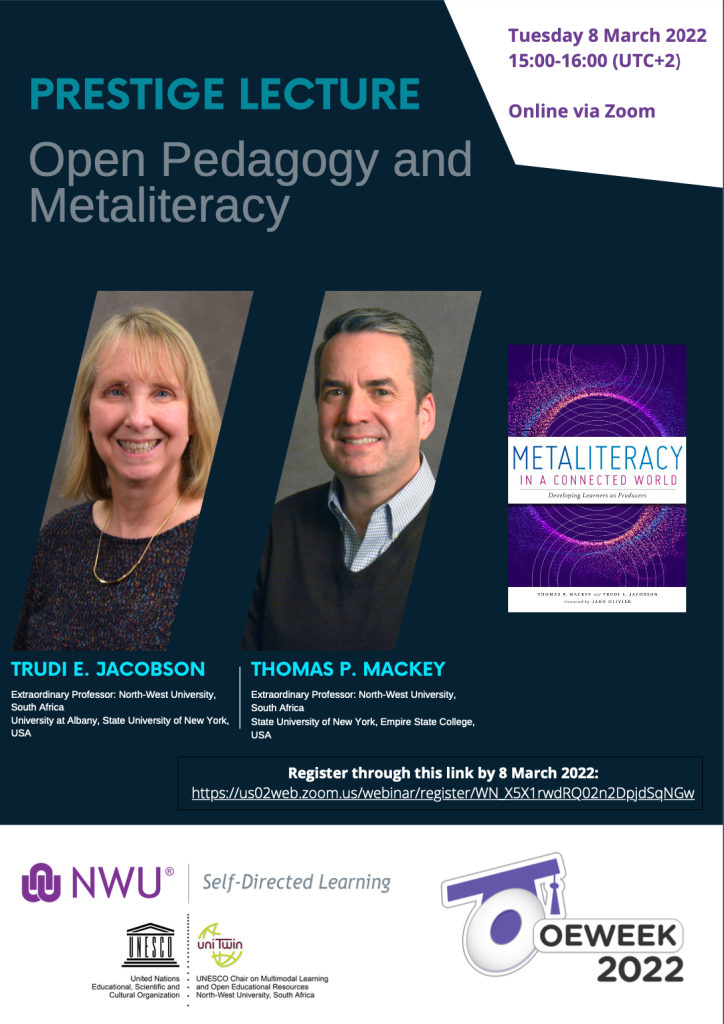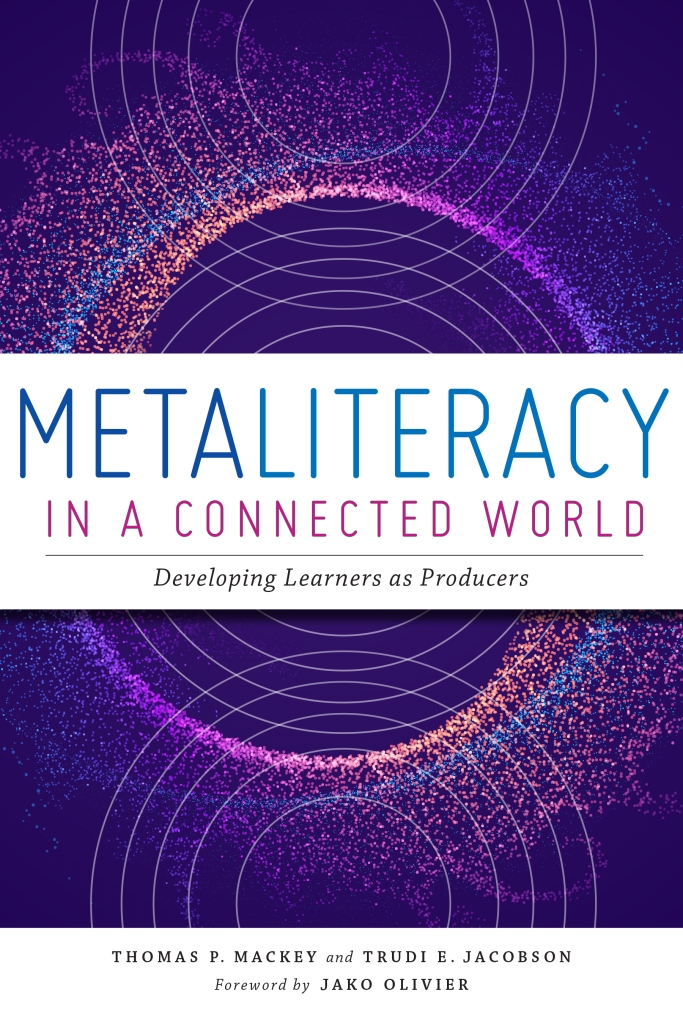
Now that Metaliteracy in a Connected World: Developing Learners as Producers has been published, what do the critics think? We were thrilled to read this review of our new book written by Jodie R Heap from Staffordshire University in the latest issue of Journal of Information Literacy, one of the premiere journals in the field!
According to Heap’s book review of Metaliteracy in a Connected World:
The flow of the text works well to introduce the reader to the concepts surrounding metaliteracy and then proceeds to provide evidence and a variety of examples of metaliteracy in action within Higher Education settings. The reader is supported in their understanding of how application of the metaliteracy framework and concepts could vary depending on the course. The activity section deserves particular appreciation —it provides various examples through which the framework could be applied, a useful scaffolding tool which not many texts offer.
(Heap, 2022, p. 131)
The reviewer provides an analysis of all six of the book’s chapters and argues that “It offers a useful jumping off point for both teachers and librarians in exploring the application of metaliteracy in the classroom” (Heap, 2022, p. 132).
We appreciate this review of our latest metaliteracy book published by ALA Neal-Schuman and look forward to seeing how it is received by authors and practitioners in the field and beyond. If you are aware of other reviews, feel free to send them our way!
Tom and Trudi
HEAP, Jodie R. Book review of Mackey, T., and Jacobson, T. 2022. Metaliteracy in a connected world: Developing learners as producers. Journal of Information Literacy, [S.l.], v. 16, n. 1, p. 131-132, june 2022. ISSN 1750-5968. Available at: <https://ojs.lboro.ac.uk/JIL/article/view/BR-V16-11-1>. Date accessed: 20 june 2022. doi: https://doi.org/10.11645/16.1.3217.



